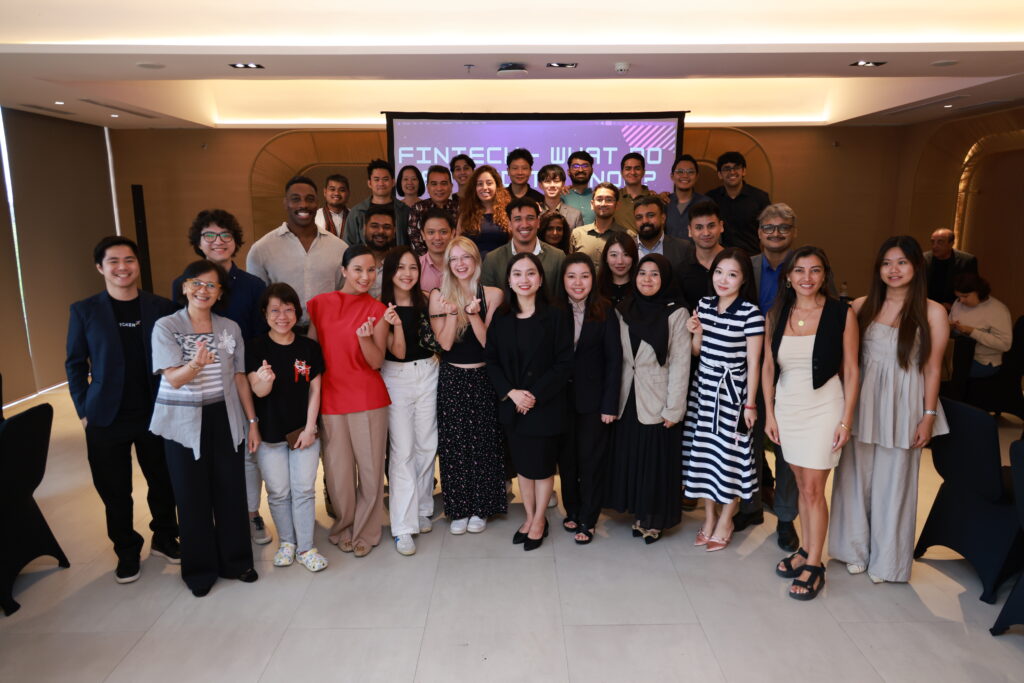Last week, I had the privilege of representing the International Council for Small Business at the World Learning FinTech Forum in Bali, Indonesia, focusing on “U.S.–Indo-Pacific Cooperation on Decentralized Finance.” As we explored the future of FinTech across two of the world’s most dynamic economic regions, one theme became crystal clear: the next wave of financial innovation must serve micro, small, and medium enterprises (MSMEs) if we truly want to achieve inclusive economic growth.
During our group dialogue on “Bridging Barriers in FinTech Adoption,” participants from across the Indo-Pacific and United States identified critical gaps between current FinTech offerings and what MSMEs actually need. As we move into what experts are calling “FinTech 3.0” – characterized by embedded finance, AI-powered personalization, and cross-border interoperability – it’s essential that we don’t leave the backbone of our economies behind.
Here are the 10 critical needs that emerged from our discussions, representing the voice of MSMEs in the evolving FinTech landscape:
1. Simplified Access to Capital and Credit Evaluation
MSMEs consistently struggle with traditional credit evaluation systems that fail to account for their unique circumstances. FinTech solutions need to develop alternative risk assessment models that can evaluate student entrepreneurs, immigrant-owned businesses, and other underserved groups who lack traditional credit histories. Machine learning and AI tools should be leveraged to create more inclusive lending frameworks that look beyond conventional metrics.
2. Embedded Financial Services in Business Operations
Rather than forcing MSMEs to juggle multiple platforms, the future of FinTech lies in embedded finance – integrating financial services directly into the tools businesses already use. Whether it’s payment processing in e-commerce platforms, invoice financing in accounting software, or insurance products in supply chain management systems, MSMEs need seamless financial integration.
3. AI-Powered Financial Advisory and Automation
Small business owners wear many hats and often lack dedicated financial expertise. FinTech solutions must provide AI-driven tools that can analyze spending patterns, predict cash flow, and offer proactive financial advice. This includes automated bookkeeping, tax optimization suggestions, and strategic financial planning – essentially democratizing the kind of financial advisory services traditionally available only to larger enterprises.
4. Cross-Border Payment and Market Access
As highlighted by innovations like Stripe Atlas, MSMEs need simplified pathways to international markets. This means real-time cross-border payments, multi-currency support, and regulatory compliance assistance that enables a small business in Malaysia to easily serve customers in the United States, or vice versa.
5. Transparent and Explainable Financial Products
Trust remains a significant barrier to FinTech adoption among MSMEs. Financial products must be designed with transparency at their core, featuring clear fee structures, explainable AI decisions, and educational components that help business owners understand what they’re signing up for. This is particularly crucial given the warning signals we’re seeing in areas like Buy Now, Pay Later (BNPL) services.
6. Digital Financial Literacy and Education
Beyond just providing tools, FinTech companies must invest in comprehensive educational ecosystems. MSMEs need practical training on blockchain applications, AI tool utilization, digital security best practices, and understanding complex business structures and tax advantages. The goal should be moving beyond basic literacy campaigns to building genuine financial confidence.
7. Strategic Partnership and Mentorship Platforms
MSMEs need more than just financial products – they need ecosystems. FinTech solutions should facilitate connections between small businesses and mentors, strategic partners, and peer networks. This includes marketplaces that help MSMEs access talent (particularly from marginalized groups), find strategic partners, and connect with experienced advisors who understand their challenges.
8. Regulatory Compliance and Risk Management Support
Navigating the complex regulatory landscape is overwhelming for small businesses, especially those operating across borders. FinTech solutions need to provide built-in compliance assistance, automated regulatory reporting, and risk management tools that help MSMEs operate safely without requiring dedicated legal teams.
9. Flexible and Scalable Infrastructure
MSMEs need financial infrastructure that can grow with them. This means payment systems that work for a single-person startup and can scale to handle enterprise-level transactions, banking solutions that adapt to changing business models, and credit facilities that expand based on demonstrated performance rather than arbitrary limits.
10. Cultural and Contextual Adaptation
Perhaps most importantly, FinTech solutions must be designed with local contexts in mind. What works in cash-heavy economies may differ from digital-first markets. Solutions must respect cultural approaches to finance, family-based lending traditions, and local business practices while still providing modern financial capabilities.
The Path Forward
As we concluded our forum discussions in Bali, it became clear that the next wave of FinTech growth should be measured not just by valuations or IPO counts, but by how many MSMEs gain genuine financial dignity and resilience. The opportunity is enormous – with 1.4 billion people globally still unbanked and countless MSMEs underserved by traditional financial institutions.
The companies that will win in FinTech 3.0 will be those that recognize MSMEs not as an afterthought, but as the primary market opportunity. They’ll be the ones that build bridges between innovation hubs, create regulatory sandboxes that actually work for small businesses, and develop solutions that make financial services as intuitive for MSMEs as consumer payment apps have become for individuals.
The conversation in Bali reinforced that we’re at an inflection point. The next wave of FinTech innovation has the potential to truly democratize access to financial services – but only if we design with MSMEs at the center from day one. As we continue to bridge the gap between the U.S. and Indo-Pacific FinTech ecosystems, ensuring that small businesses have a voice in shaping that future must remain our priority.
The author represented the International Council for Small Business as a facilitator at the U.S.–Indo-Pacific Cooperation on Decentralized Finance forum, August 19-20, 2025, in Bali, Indonesia.


